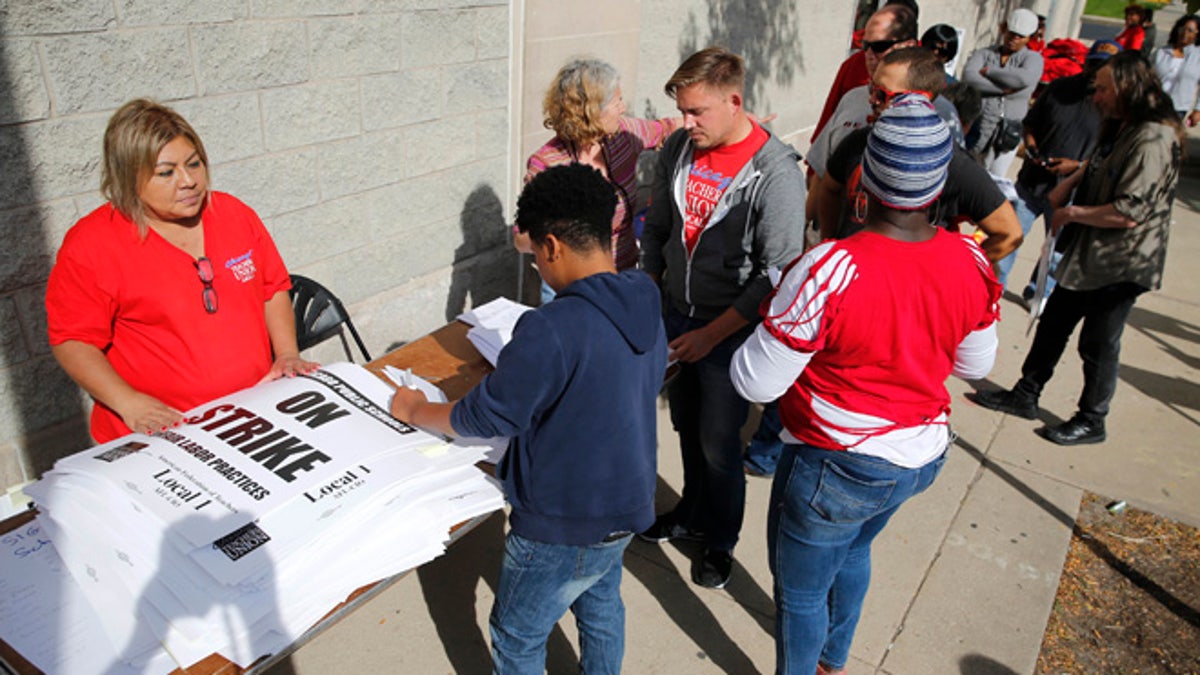
Chicago Teachers Union members pick up strike material outside union's strike headquarters Monday, Oct. 10, 2016, in Chicago. (AP Photo/Charles Rex Arbogast)
Relieved parents dropped their children off at Chicago schools on Tuesday morning after the Chicago Teachers Union and the nation's third-largest school district averted a strike with a late-night tentative contract agreement.
Chicago Teachers Union President Karen Lewis said at a news conference late Monday that after more than a year of negotiations, the two sides had hammered out an agreement that isn't perfect but is good for students, teachers and the city. The deal still must be approved by the union's House of Delegates and all roughly 28,000 members, a process that could take weeks.
"There will be classes in the morning," she said. "It wasn't easy, as you all know ... We're very pleased we were able to come to this tentative agreement."
Chicago Mayor Rahm Emanuel said the proposal ensures teachers are respected and "appropriately rewarded," while strengthening CPS finances and reassuring parents and taxpayers that the two sides are able to work together. There was no immediate information about how much the deal would cost or how the financially struggling district would pay for it.
"Students across Chicago will be in school this morning and on the path to a stronger and brighter future," Emanuel said at an early Tuesday news conference at City Hall.
Michael Cleveland said he had been convinced that there would be a strike Tuesday. Dropping his 6- and 8-year-old daughters off at Ronald E. McNair Elementary School on the city's West Side, he said he was still angry with city officials -- including Emanuel and Chicago Public Schools CEO Forrest Claypool.
"They know there are kids involved and they know the teachers do all they can," Cleveland said, adding that he felt the politicians were putting teachers "through this for no reason."
The four-year proposal includes cost-of-living increases of 2 percent in the third year and 2.5 percent in the fourth year. It doesn't require current teachers to pay more toward their pensions -- a change CPS had been seeking and the union rejected earlier this year -- but future CPS hires would have to pick up that additional pension cost.
The tentative agreement also addresses class sizes for younger grades by assigning an assistant to any class with more than 32 students.
CPS has nearly 400,000 students.

